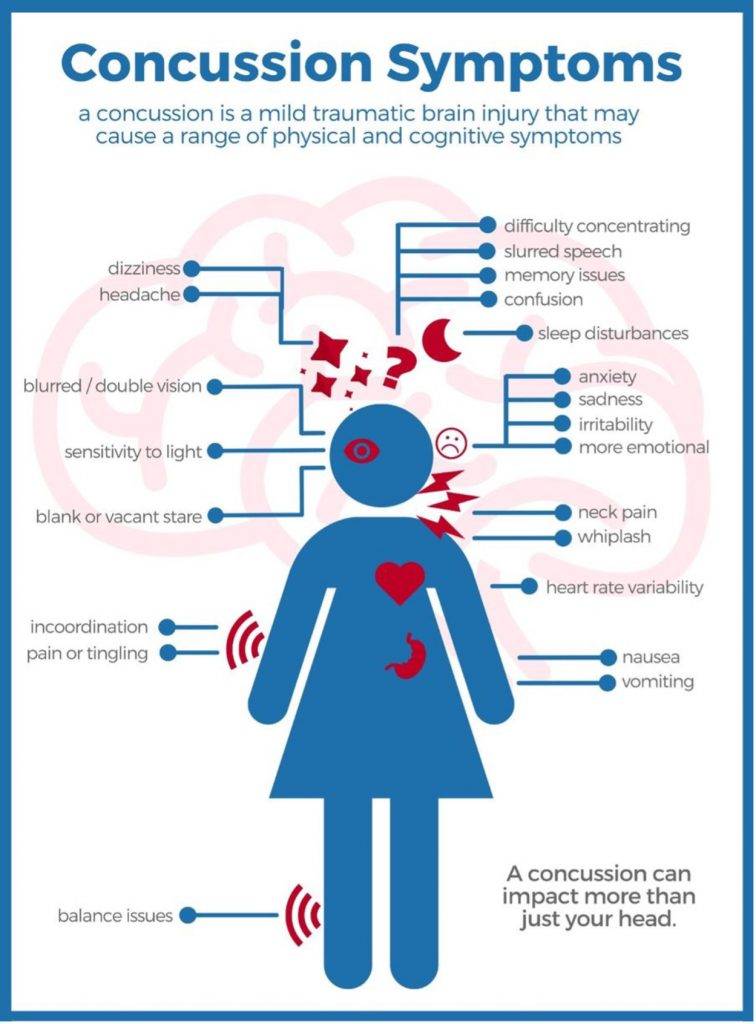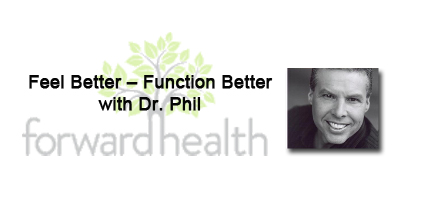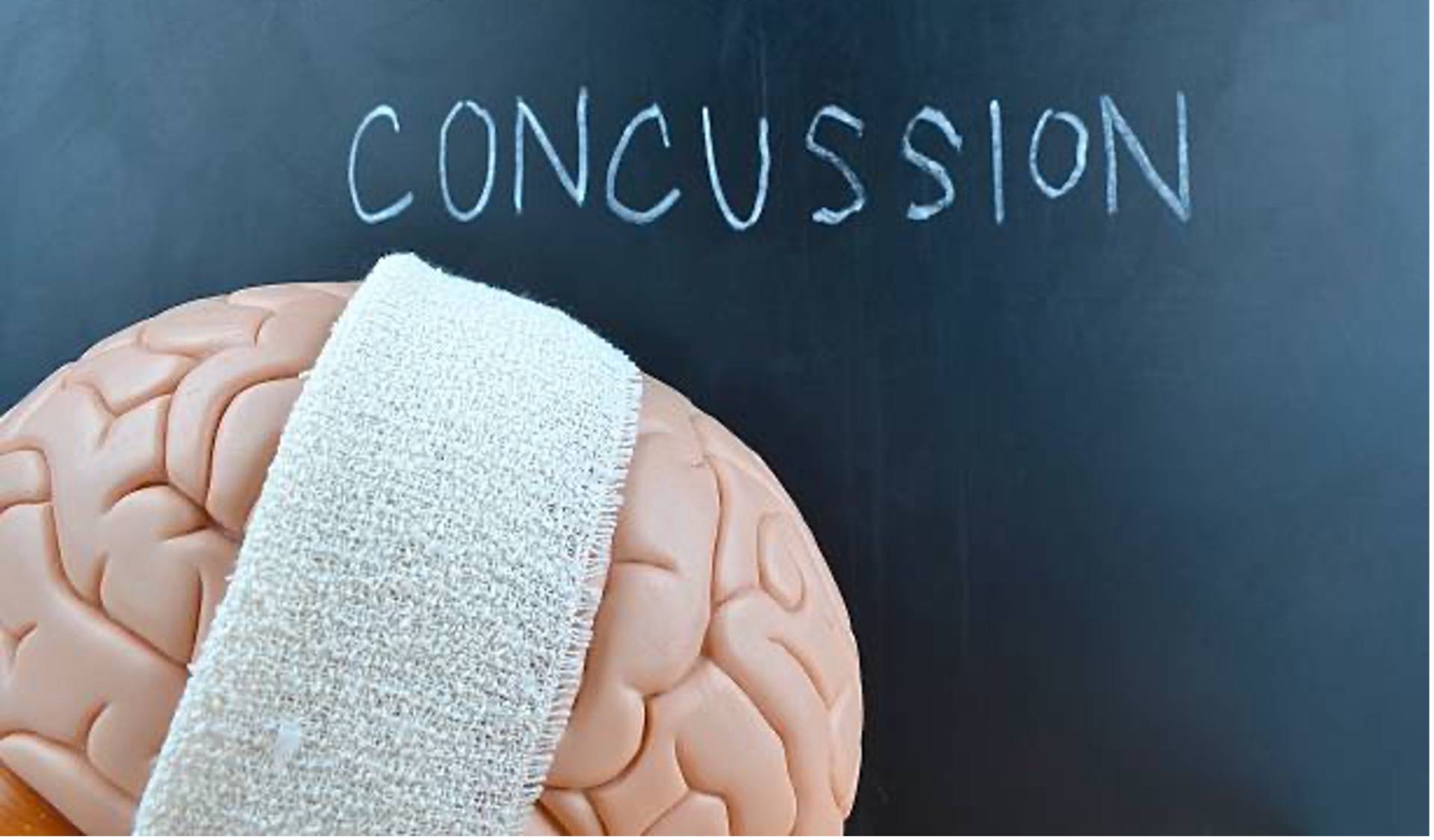What is a Concussion?
A concussion is an injury that affects brain function. Any hit to your head, face, neck or body can cause a concussion. That’s if the force is enough to jostle your brain inside your skull. Contact sports are a common source of concussions. But you can also get them from other incidents. For example, automobile or bicycle collisions, or a workplace accident. It could be something as simple as bumping your head against a cupboard door.
Anytime a concussion is diagnosed, the patient will have also suffered a whiplash associated injury. You can have a whiplash injury without a concussion, but you will not have a concussion without a whiplash associated injury. It takes approximately 15-20NM of force to induce whiplash and 90-120NM of force to induce a concussion.
Unfortunately, it is very common in an auto collision for drivers and passengers to suffer physical injuries.
How do I know if I have a concussion?
Common physical symptoms include:
- Headaches
- Dizziness
- Nausea
- Sensitivity to noise or light
- Balance problems
- Feeling tired and low energy
- Difficulty concentrating or
- Remembering new information
A concussion may also make you feel more irritable, sad or anxious and disrupt your normal sleep patterns.

Should I see a doctor if I may have a concussion?
Definitely. If you’ve hit your head or experienced any blow strong enough to make your head or neck whip back and forth, it is best to have an assessment. Even if you’re not sure if you’ve suffered a concussion or you think the symptoms will go away. Also, it may take days or even weeks for you to notice the symptoms. A doctor will make sure nothing more significant has happened.
To confirm a concussion, your health-care professional may give you several tests. The neurological part of the examination may include checking your vision, hearing, balance, coordination, strength, sensation, and reflexes. The cognitive part can include testing your memory, concentration, and ability to recall information.
What can I do to help recover from a concussion?
For the first 24 to 72 hours, rest is crucial. That means both physical as well as cognitive rest. Avoid electronic devices, stimulants such coffee and any activities that may lead to an increase in your symptoms. And don’t drive for at least a day. But avoid not doing anything as this can prolong your recovery.
When can I get back to my normal routine after a concussion?
After the first few days of rest, slowly reintegrate yourself into your day-to-day life. But continue to avoid anything that increases your symptoms or puts you at risk of hitting your head again. That means no contact sports or high-risk activities like being up on ladders or on roofs. In general, try to slow yourself down and be mindful of what you’re doing so you don’t reinjure yourself. Complete Concussion Management practitioners are trained in the latest exercise protocols.
How long does it take to recover from a concussion?
More than most other injuries, every concussion is an individual experience. Symptoms and recovery times can vary widely from person to person. Most people feel better after about 10 days. Unfortunately, some concussion sufferers will continue to experience significant symptoms after 10 days. These people may need more help and guidance to get better. With treatment most people start to feel better after 3-6 weeks of care.
Does a concussion mean I have to give up what I love to do?
Typically, no. Most people recover fully from their concussions and return to regular activities. But people who have had multiple concussions and are looking to return to high risk activities should always seek medical guidance. It really depends upon your symptoms.
Concussion Myths
There is a lot of information out there about concussion, and we often see similar questions. How do they happen? Why do they happen? Can they be prevented? Are athletes in some sports at greater risk? How are they treated?
1. Myth: Helmets can protect against concussion in sport
Currently, there are no helmets that are proven to protect against concussion or reduce the incidence rate. A helmet does not prevent concussion because it is caused by acceleration or deceleration of the brain within the skull. However, helmets can protect against skull fractures and cuts, and therefore, should be worn as recommended, such as in high risk sports like hockey, football, skiing and cycling, among others.
2. Myth: Mouth guards can prevent concussion
This is not true. Mouth guards can reduce oral and dental injuries, but like helmets, there is limited research or evidence to support that they can prevent concussion.
3. Myth: Only a hit to the head can cause a concussion
Concussion is an acceleration injury, causing the brain to rattle or shake in the skull. A big impact to the body can cause acceleration of the brain and result in concussion. Slide tackles, open ice shoulder hits and whiplash are possible causes of concussion because of the force that’s transmitted to the head.
4. Myth: Concussions can only happen in contact sports
While there are a significant number of concussions in contact sports such as rugby, hockey and football, concussions in other “non-contact” sports frequently happen. Sources show that head injuries commonly occur in sports such as soccer, cycling, skiing, basketball, baseball, dance and gymnastics.
5. Myth: No loss of consciousness = No concussion
This is not true! It is estimated that more than 90% of concussions do not result in a loss of consciousness.
6. Myth: Rest is the best recovery
Rest was once a common way to manage a concussion, but the most recent consensus statement on concussion in sport recommends a period of symptom-limited rest (24 to 48 hours). Following this period, those who have suffered a concussion can be encouraged to become gradually and progressively more active. There are a range of effective evidence-based treatments to support recovery, which may include chiropractic care and exercise therapy, manual therapy, diet and nutritional changes, vestibular and visual rehabilitation, and education and reassurance.
If you believe you might be suffering from If you suspect you might have a concussion,
schedule your assessment today and learn what you can do to help with your recovery.
We are here to help.
519-826-7973


